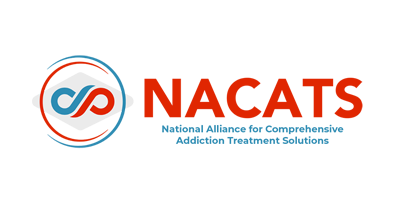Table of Contents
It’s Not Working: Is My Buprenorphine (Suboxone®) Dose Too Low?
Every patient is different. This is something we continue to say because it rings true in every case. While some patients might do well with one form of treatment, other patients might be better suited for other forms of treatment.
This goes for medicine, too. There are different doses of medication for a reason, and just because you are prescribed a certain dose doesn’t mean that it will be just right. This goes for all medications, but we will be focusing on buprenorphine (Suboxone®), a medication commonly used in medication-assisted treatment for opioid addiction.
We’ll discuss the signs that your Suboxone® dose is too low, and treatment at ReVIDA Recovery®. But first, let’s look at why treatment for opioid use disorder is so important in Tennessee.
The Scope of Opioid Use Disorder (OUD)
The Volunteer State has been hit hard by the opioid epidemic. According to the Tennessee Bureau of Investigation, around 70,000 people in Tennessee are addicted to opioids. In the past few years, the national opioid-involved overdose death rate has soared, going from 47,600 in 2017 to 68,630 in 2020. Knoxville, Tennessee, has been impacted as well. In Knox County, the opioid overdose death rate increased from 383 in 2020 to 457 in 2021. The scope of opioid use disorder is a reason why ReVIDA Recovery® offers medication-assisted treatment (MAT) using buprenorphine (Suboxone®).
What Is Medication-Assisted Treatment (MAT)?
Medication-assisted treatment, or MAT, is a form of treatment that uses medications to weaken withdrawal symptoms. This will make those withdrawal symptoms much easier to handle during treatment that will include counseling, which is another part of MAT.
All of these medications are approved by the Food and Drug Administration (FDA) and are safe to take with a much smaller threat of addiction. A physician or licensed prescriber will prescribe the medication if it is needed for you and help you through each step of the process.
According to the Substance Abuse and Mental Health Services Administration, MAT has been proven to be an effective form of treatment.
There are several medications used in MAT. Some of the most common are methadone, naltrexone, and buprenorphine (Suboxone®).
What Is Buprenorphine (Suboxone®)?
Buprenorphine (Suboxone®) is a medication used to treat opioid use disorder (OUD). It is a combination of buprenorphine and naloxone. The active ingredient of buprenorphine (Suboxone®) is buprenorphine, which acts as a partial opioid agonist.
As a partial agonist, the buprenorphine binds to the opioid receptors in the brain much like other opioids, but it produces a much weaker effect. This also means that it has a “ceiling effect.” This way, the buprenorphine’s opioid effects can only reach a certain extent until they level off, decreasing the threat of dependency or misuse.
Naloxone is a medication for opioid overdose prevention and is the secondary substance in buprenorphine (Suboxone®). Naloxone is an opioid antagonist. This means that it is an opioid blocker, and it blocks the effects of opioids. It activates when someone injects buprenorphine (Suboxone®). If naloxone is injected directly into the bloodstream, then the person would face very uncomfortable withdrawal symptoms, discouraging injection and encouraging taking buprenorphine (Suboxone®) by the sublingual tablet or film.
What Makes Buprenorphine (Suboxone®) Different?
Buprenorphine (Suboxone®) is different from other forms of medication used in MAT because it is the first medication that can be prescribed by a primary care physician. This greatly increases access to treatment for all people. When taken as prescribed, buprenorphine (Suboxone®) can help:
- Lower the potential for opioid misuse
- Reduce withdrawal symptoms
- Increase safety in cases of overdose
Before taking buprenorphine (Suboxone®), it should be discussed with your primary care physician or the medical provider at a treatment center to see if it is right for you. This will be the first step in MAT, and your physician/medical provider will decide the dosage.
How Long Does Buprenorphine (Suboxone®) Work?
The length of buprenorphine (Suboxone®’s) effects depends on several factors. Your metabolism, weight, and your history of substance use are all factors that influence how long Suboxone® stays in your system.
Typically, Suboxone® works for 24 hours or a day. That said, the effects can last for up to 60 hours, depending on how much you are prescribed. For example, if you are prescribed 1 mg (milligram) of buprenorphine (Suboxone®), the effects will probably last from 12 to 36 hours. If you are prescribed 16 mg, it may last a bit longer than that, like 48 hours.
How To Know If Your Suboxone® Dose Is Too Low
Buprenorphine (Suboxone®) has a couple of different purposes, and whether the dose is too low depends on the reason you are taking the medication. There is also a theory that “less is more” when it comes to taking buprenorphine (Suboxone®), but this is incorrect. The “ceiling effect” dispels that theory. Now let’s look at the reasons to take the medication, and if the dose is too low or not.
Reason 1: Pain
If you are taking buprenorphine (Suboxone®) for pain, and you are not taking any other opioids, the dose may need to be increased if you are still in pain and it isn’t well controlled. The lowest dose for pain can be 2 mg. For chronic pain, you would typically be taking a dose three times a day.
Reason 2: Opioid Use Disorder (OUD)
If you are taking buprenorphine (Suboxone®) for OUD, your dose is too low if you are having withdrawal symptoms. The goal of buprenorphine (Suboxone®) is to minimize cravings and weaken withdrawal symptoms, so it is important that your dose is not too low.
The lowest typical dose for buprenorphine (Suboxone®) is 2 mg, but it can go up to 8 mg or as high as 16 mg. The frequency of when you take it is dependent on what your physician/medical provider says. You might be taking buprenorphine (Suboxone®) daily for a while, but after symptoms wear off, you may be able to take it every other day.
Treatment at ReVIDA Recovery®
ReVIDA Recovery® sees the need for treatment for OUD in Tennessee, which is why we offer a continuum of outpatient care. Every patient is different, but we have seen how well outpatient treatment helps those in The Volunteer State.
What Is Outpatient Treatment?
Outpatient treatment means that you will be attending sessions at the facility, but you will continue to live at home. We understand that you may have duties outside of treatment, such as providing for the family or going to school. Outpatient treatment gives you the time to perform these duties while also giving you time to focus on treatment. Our evidence-based practices include different forms of therapy, education, medication-assisted treatment, and group recovery meetings.
Cognitive Behavioral Therapy (CBT)
Known as the gold standard of psychotherapy, cognitive behavioral therapy (CBT) aims to catch inaccurate thinking patterns and reframe them in a realistic way. CBT is all about changing two patterns: thinking and behavioral. According to the American Psychological Association, these are the strategies used to change behavioral patterns:
- Facing your fears instead of avoiding them
- Role-playing to prepare for problematic interactions with others
- Learning how to calm your mind and relax your body
To change thinking patterns, CBT teaches these strategies:
- Using problem-solving skills to cope with stressful situations
- Learning to develop self-confidence in your abilities
- Gaining a better understanding of the motivations of other people
CBT is known for having “homework.” These are activities done outside therapy sessions and are dependent on the needs of the person. For example, homework for someone with social anxiety could be saying “Hi” to someone they don’t know. CBT works best when the patient shares all of their feelings. This can be difficult, but it will help you get the most out of therapy in the long run.
Group Therapy
Addiction can feel very lonely. Sometimes, it feels like you are the only person struggling with addiction. We are here to let you know: You are not alone. This is why group therapy is so beneficial.
Group therapy helps weaken the stigma (negative and unfair beliefs) of OUD. Typically including five to fifteen members, group sessions vary in length. Group therapy provides an amazing support system for patients as each patient can hold each other accountable while helping with different challenges that another patient might be encountering during their recovery.
Group therapy is a great way to grow interpersonal skills for patients. Listening without interrupting is very important in communication. It can also be helpful to listen to patients who are going through the same addiction as it can put things in perspective for other patients.
Group therapy also shows diversity as well. So many people struggle with addiction, and group therapy shows the different backgrounds people come from and how common opioid addiction is. It can also help build camaraderie within the space of therapy. While this is not something that patients are comfortable with overnight, it will benefit you in the long run as it will make group therapy much more fulfilling and rewarding.
Patients in group therapy often are surprised at how much it has helped them. Patients have reported that group therapy helped them out more than they thought it would and reported an enhanced feeling of self-acceptance. This makes sense as patients relate to each other as they share their stories.
Group therapy provides a safe space for patients so they can be themselves. While this can be quite difficult in many settings, it helps that they are around like-minded people with one common enemy (addiction) and one common goal (recovery). This makes patients far more comfortable.
Reclaim Your Life at ReVIDA Recovery®
ReVIDA Recovery® is here to help you reclaim your life from opioid use disorder. Located in Tennessee, we offer a premier network of outpatient centers with Suboxone® treatment because we understand that many patients lead busy lives and have other duties outside of recovery. Call (844) 972-4673 for more information or to start your recovery today.











